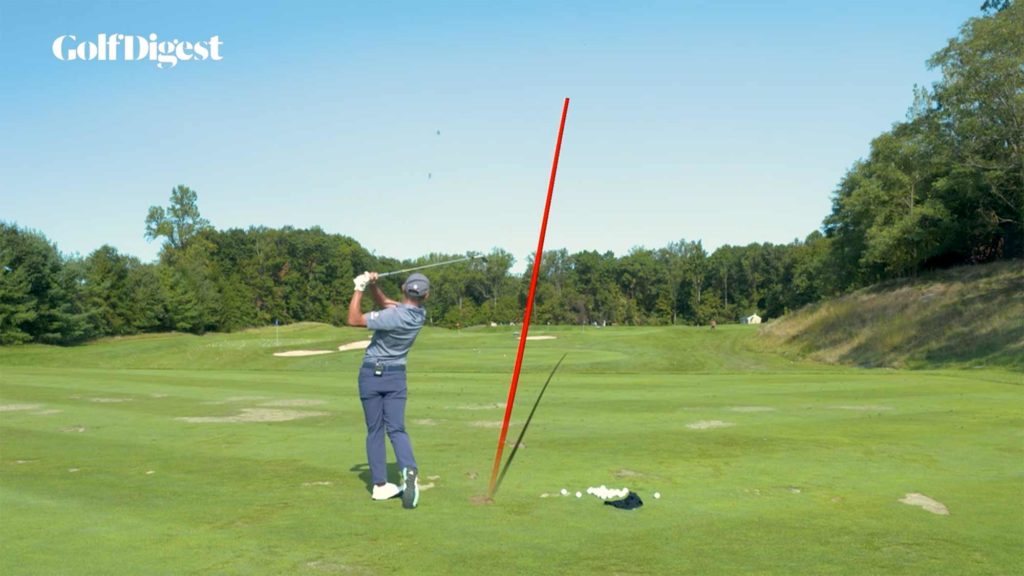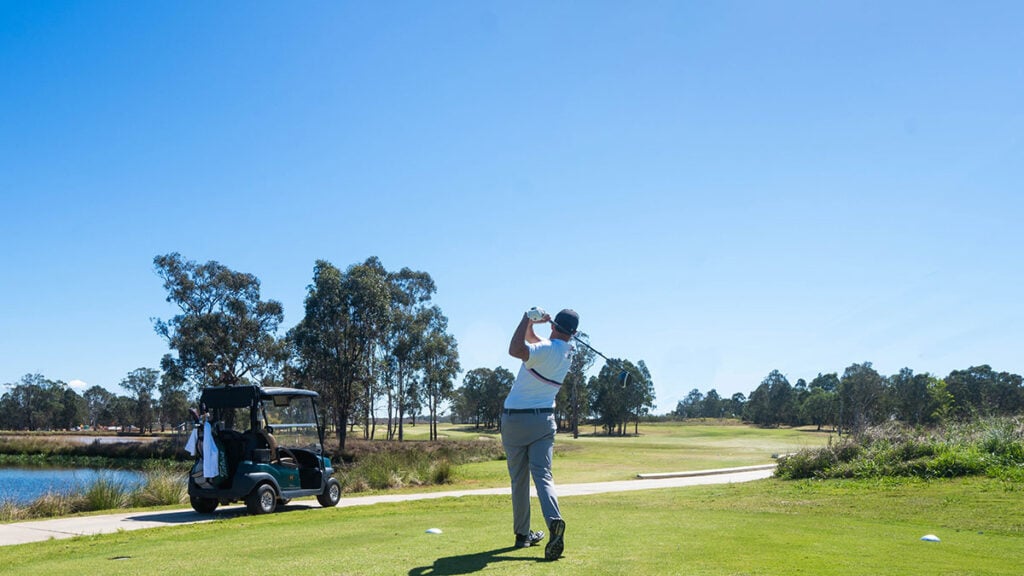In July 2020, Collin Morikawa wasn’t feeling as confident as he normally does about his game. When I met him at Muirfield Village for the Workday Charity Open, he was coming off his first missed cut as a professional. Of course, we never expected him to make every single cut, but it was certainly a bit of a shock after he had made 22 in a row to start life on the PGA Tour. The week before, he had finished T-64 at the RBC Heritage. Those were the two worst finishes of his career to that point, and they happened in back-to-back weeks.
But he was not in the correct headspace to play his best. Besides the swing work we do, a big part of my coaching involves trying to get Collin in the right mental place to perform at his peak. In sports psychology terms, we call this the flow state – loosely defined as being wholly immersed in an activity with a sense of heightened focus.
The opposite of flow is fear, and the majority of amateur golfers play in a state of fear. When you play in a state of fear, your focus is not on what’s in front of you – which is hitting the correct shot for the situation – it’s on all the bad things that could happen. Instead of seeing a wide fairway with ample room for your fade, you see the out-of-bounds fence 50 yards to the right. Instead of remembering that perfect 8-iron you hit to kick-in range last week, you remember the one you duffed into the water last month. Think of this as playing defence rather than attack. It’s nearly impossible to swing freely when you are playing defence.
This happens even to professionals, who are not immune from negative thoughts when they are struggling. Before the Workday, Collin was not comfortable with his ball-striking or putting. Worrying about mechanics prevents Collin – a feel-first, creative player – from having the confidence he needs to play offensively and reach his flow state, so we set out to address his mechanical concerns with the goal of finding simple thoughts to focus on and turn his outlook around.
Collin primarily plays a cut, and he sometimes fights a tendency to over-cut the ball. It’s usually an issue with his takeaway. To get back on track, we have him do a simple drill: he puts a golf glove under his left armpit and tries to keep it there throughout the backswing. It helps his arms stay connected to his body – when they get too far out, his path goes too far outside-to-in, leading to a wipey fade. During a range session on Wednesday before the Workday, he hit 10 or 12 balls doing this drill, and he loved the ball flight he was seeing. So we decided that, as part of his pre-shot routine that week, Collin would tuck his left sleeve under his armpit to remind himself of the glove drill.
With putting, both his caddie, J.J. Jakovac, and I believed that Collin was spending too much time over the ball. It wasn’t that he was having negative thoughts; he was just thinking too much – and that prevents him from being clear-headed and target-focused. We encouraged him to pull the trigger a bit quicker.
That was it – one tweak to his pre-shot routine and one tweak to his pre-putt routine, and Collin’s negative thoughts dissipated. When we wrapped up our work that Wednesday, Collin said, “I’m excited for tomorrow.” That’s about as positive as it gets, and as a mental-game coach, there is nothing I like to hear more. Now confident in his mechanics and armed with clear, simple keys to focus on, Collin was freed up to attack the golf course with his creative flair. His mindset that week was devoid of fear: to make as many birdies as possible. He got back to his flow state, made 24 birdies and two eagles over the four days, and beat Justin Thomas in a playoff for his second victory on the PGA Tour.
Collin wouldn’t have been able to win that week without addressing the swing issue. He also wouldn’t have been able to win without the mental shift that occurred on the practice range that Wednesday afternoon. The lesson? Even if you are feeling down about your game, you are never far away from a quick turnaround. The key is finding a simple thought to anchor to – one that allows you to think positively and swing offensively. Then, all that’s left to do is go and make some birdies. – with Daniel Rapaport
Rick Sessinghaus is the long-time swing coach for Collin Morikawa. Feature photo by Walter Iooss Jnr








